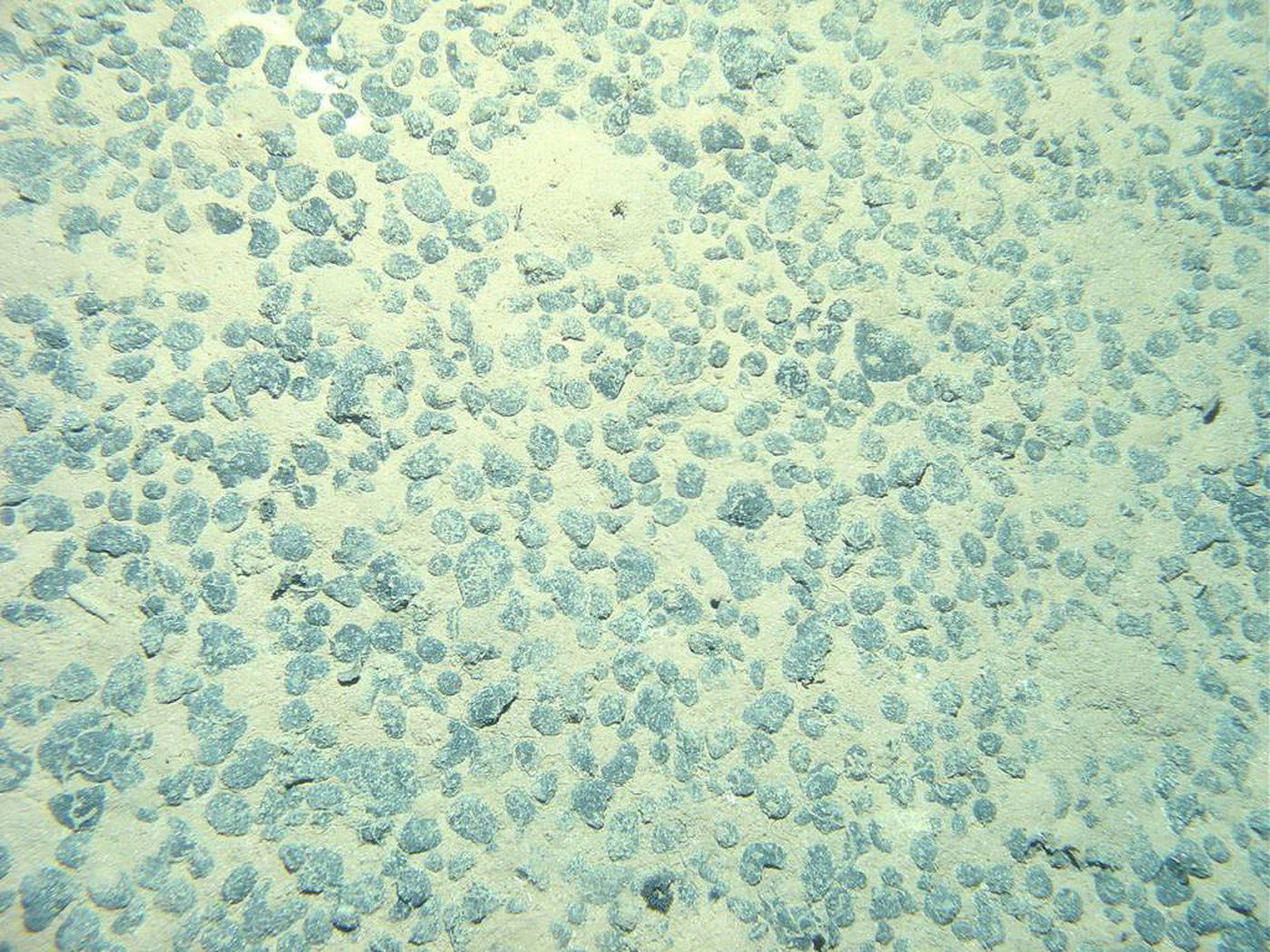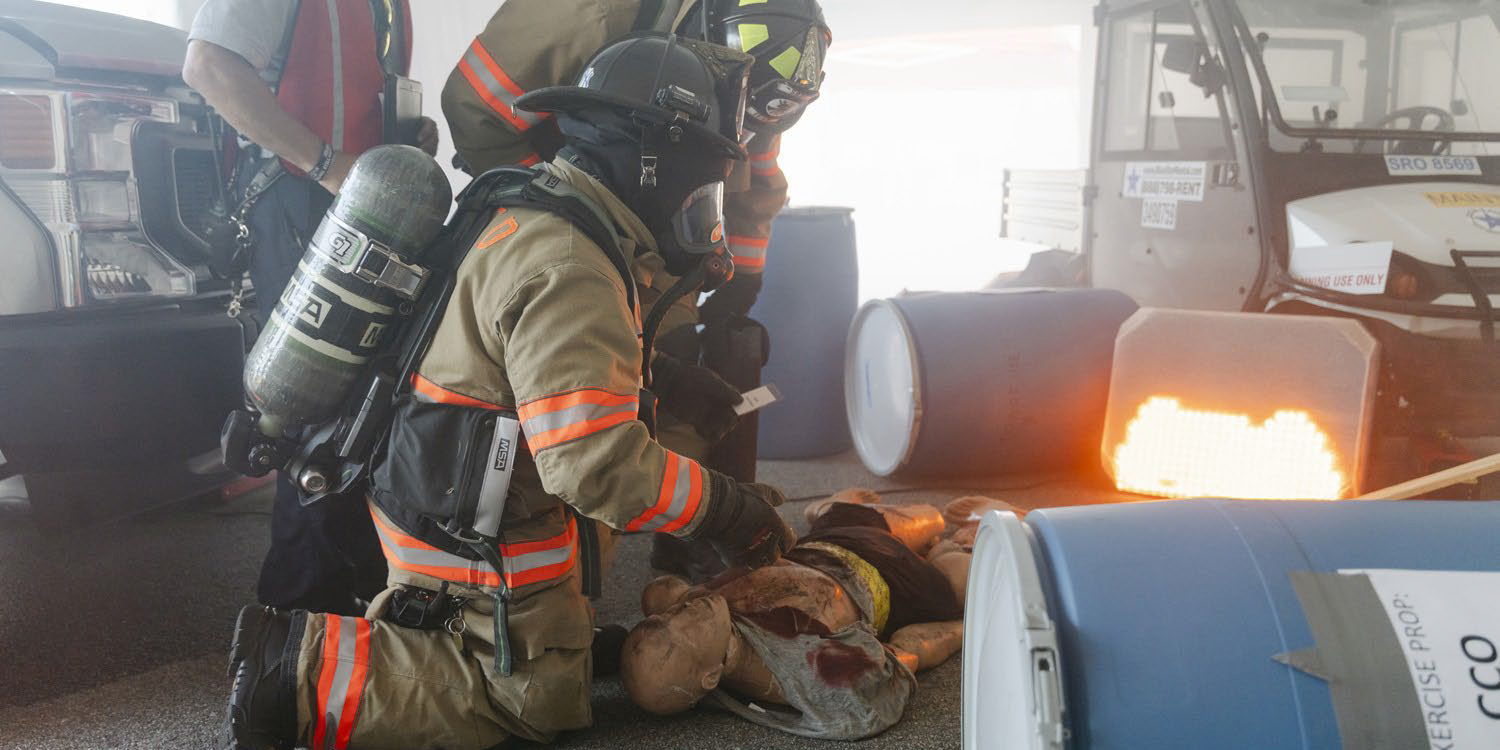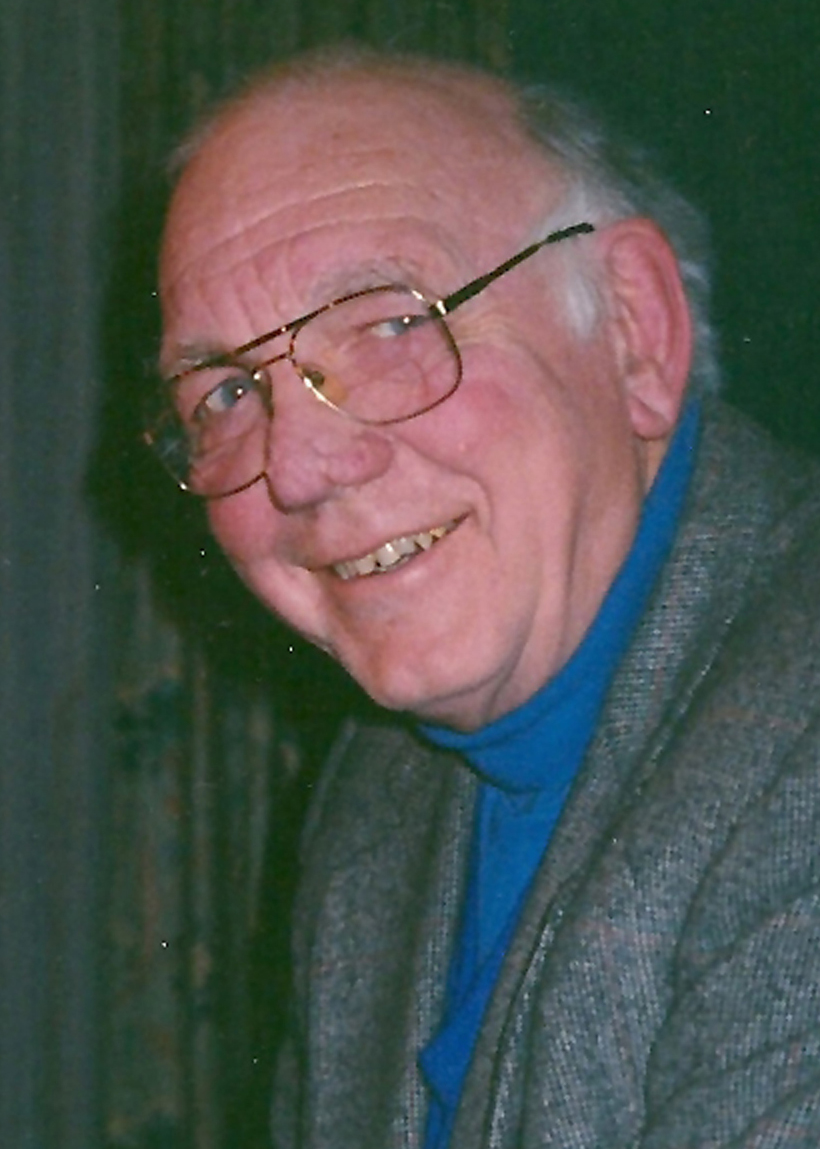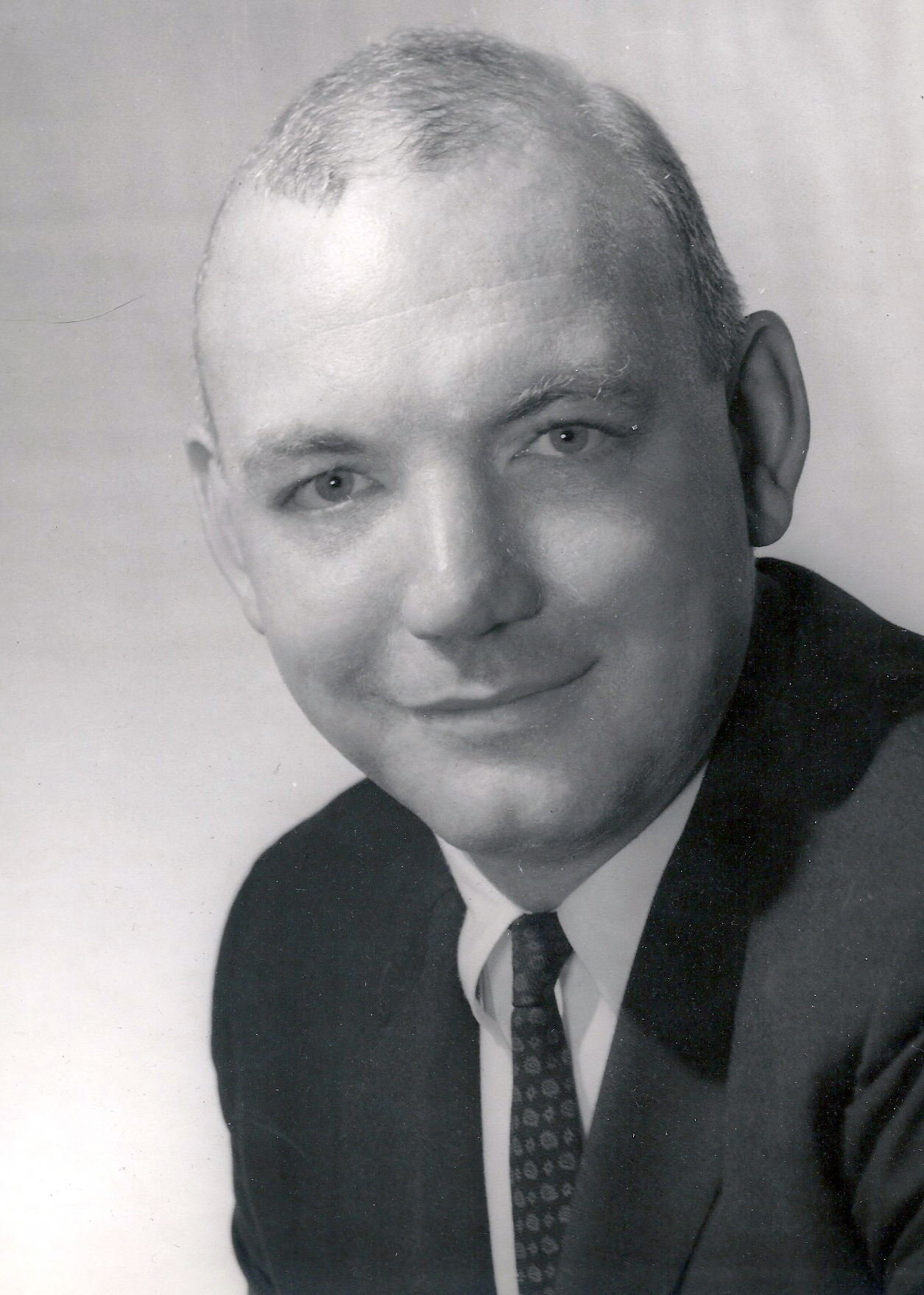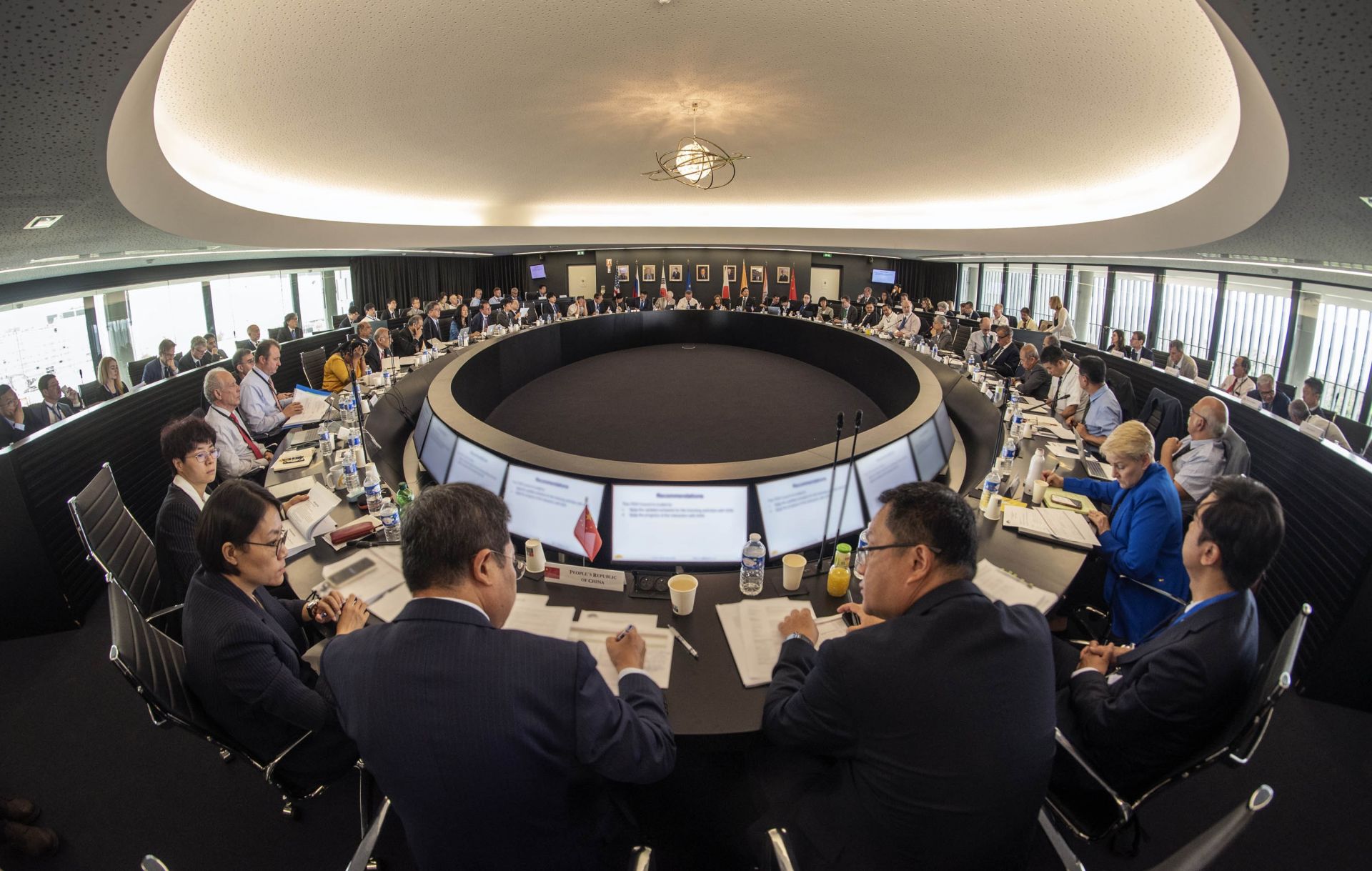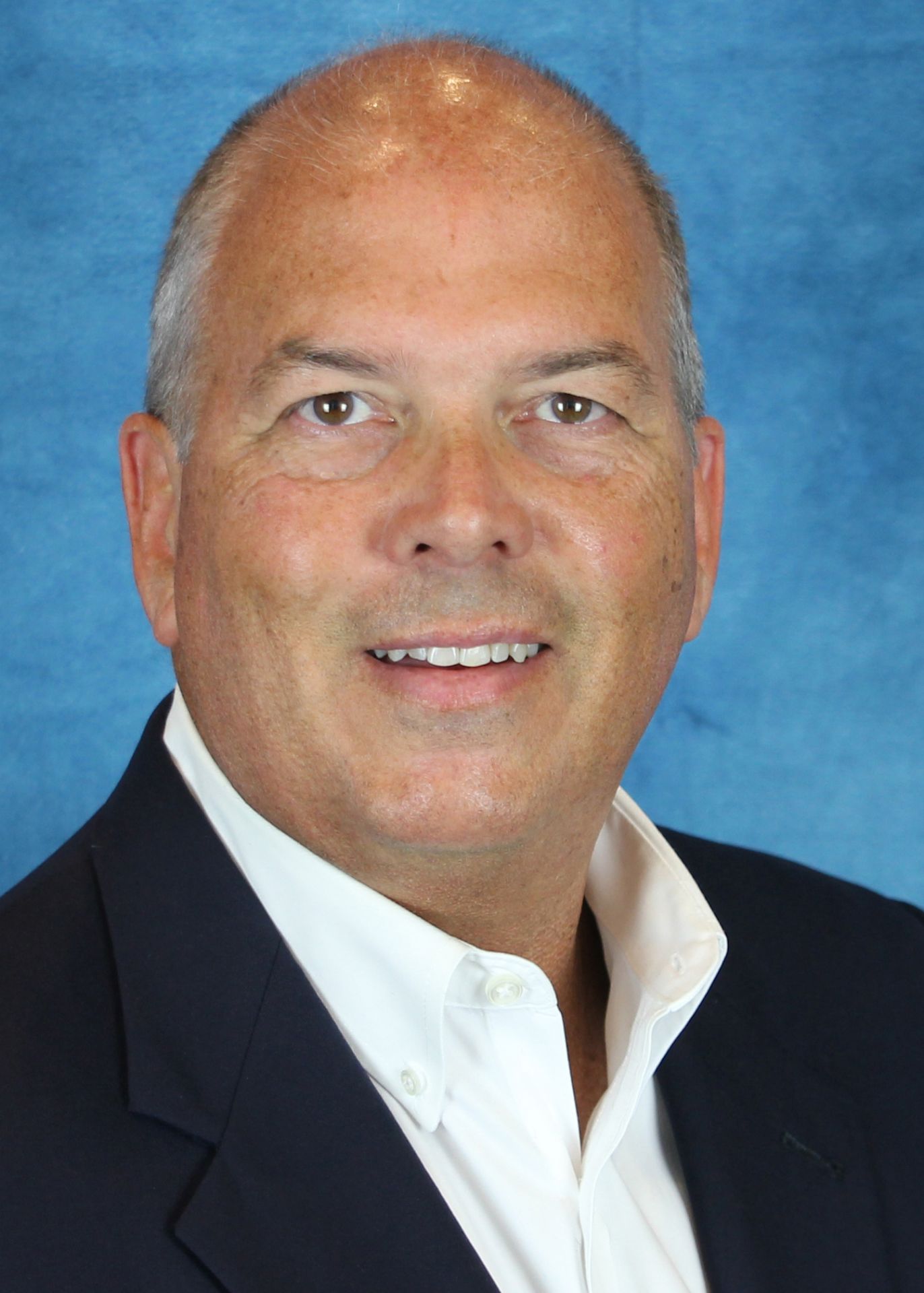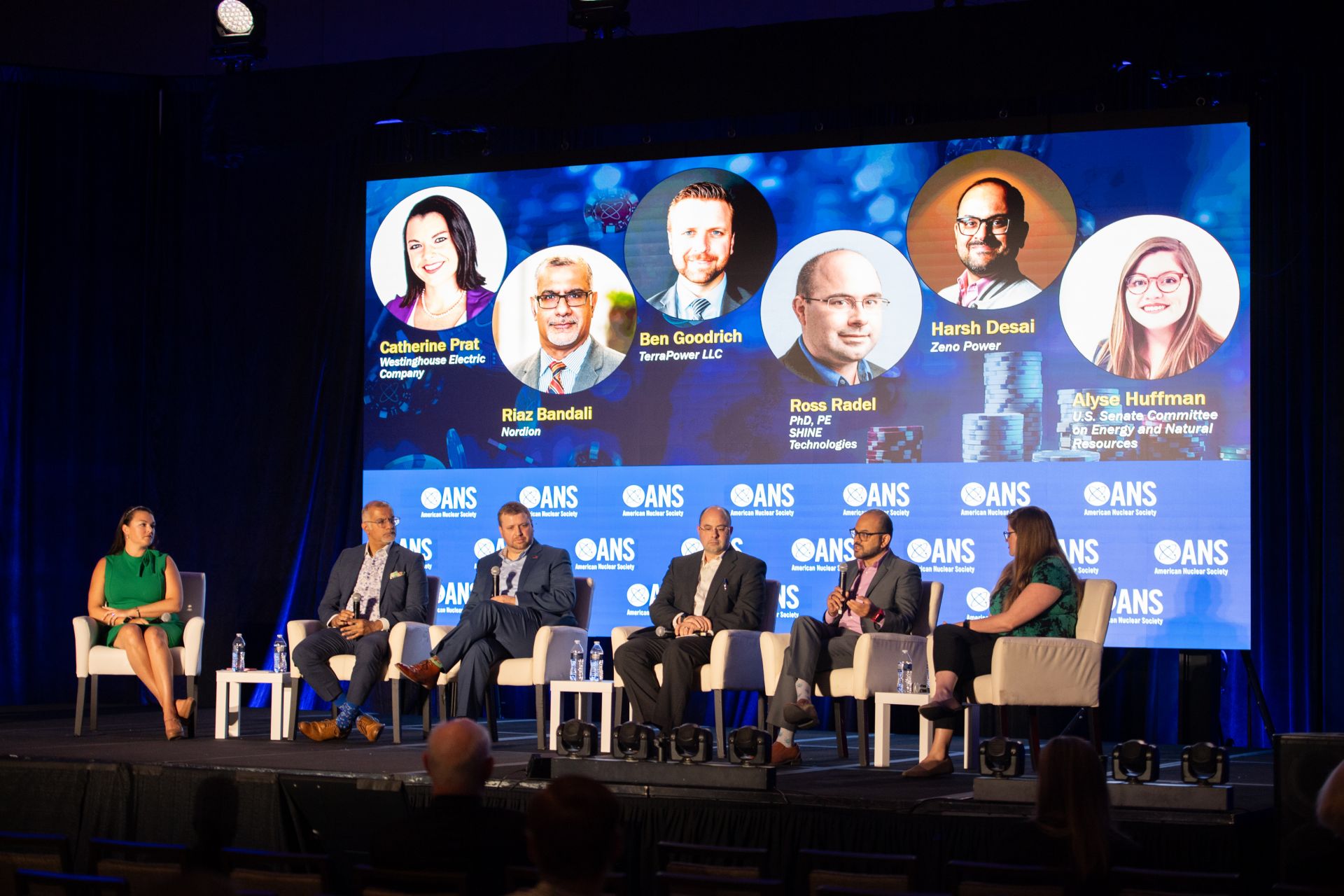The waste management panel, from left: moderator Todd Allen, Fred Dilger of Nevada, Katrina McMurrian of the NWSC, the DOE’s Paul Murray, Jenifer Shafer of ARPA-E, and Kuhika Gupta of the University of Oklahoma. (Photo: ANS)
With increasing demand for clean, reliable, and safe sources of energy, the conversation around nuclear energy is changing. And so too is the conversation around nuclear waste, even as the country struggles to find a path for the disposal of its spent nuclear fuel and high-level radioactive waste. From community engagement, to recycling, to existing success around other forms of nuclear waste management, the conversation around nuclear waste has many different angles, and an executive session of the American Nuclear Society’s 2024 Annual Conference in Las Vegas aimed to delve into some of those discussions.
Several-inch-diameter manganese nodules just sit on the ocean floor and can be collected with little to no actual mining, as opposed to severe mining on land. (Photo: Wikimedia Commons)
Regardless of how you power our grid or how you attempt to decarbonize our economy, we will need many various metals to achieve any future, or even to just continue with business as usual. Critical metals like cobalt, lithium, nickel, and neodymium are essential to a low-carbon-energy future if renewables and electric vehicles are to play a large role.1 Even if nuclear provides 100 percent of our power, just operating the grid and electrifying most sectors will take huge amounts of critical metals like copper, notwithstanding the fact that nuclear power requires the least amount of metals and other materials of any energy source.
Kyle Reed and Dianne Ezell of ORNL gather data about the performance of a sensor transistor as it is tested against the radiation within the reactor pool behind them at Ohio State University’s Nuclear Reactor Laboratory. (Photo: Michael Huson/The Ohio State University)
Researchers at the Department of Energy’s Oak Ridge National Laboratory want to make the sensors in nuclear power plants more accurate by linking them to electronics that can withstand the intense radiation inside a reactor. Electronics containing transistors made with gallium nitride, a wide-bandgap semiconductor, have been tested in the ionizing radiation environment of space. Now, according to a June 24 article from ORNL, tests carried out in the research reactor at Ohio State University indicate they could withstand neutron bombardment within a nuclear fission reactor.
Entergy’s River Bend in St. Francisville, La., a boiling water reactor and one of five Entergy nuclear power reactors. (Photo: Entergy)
The Department of Energy’s Gateway for Accelerated Innovation in Nuclear (GAIN) announced June 20 that two companies—one power plant operator and one advanced reactor developer—are getting vouchers to access the extensive nuclear research capabilities and expertise available across the DOE national laboratories in the third round of GAIN vouchers awarded for fiscal year 2024.
SRS firefighters responded to a staged scene outside of K Area’s Criticality Control Overpack pad. The firefighters followed an Incident Action Plan to maximize the safety of responders and role-playing victims for effective extraction. (Photo: DOE/SRNS)
Earlier this month, nearly 250 personnel at the Department of Energy’s Savannah River Site in South Carolina took part in an annual exercise to test preparedness for a radiological release and contamination emergency.
Concept art of ACU’s NEXT Lab. (Image: ACU)
Natura Resources, which is supporting the construction of a molten salt research reactor on the campus of Texas’s Abilene Christian University, announced in mid-June that it expects the Nuclear Regulatory Commission to complete its safety assessment and issue a permit for the nonpower test reactor in September.
Member delegates, their experts and interpreters, and representatives of the ITER Organization and the ITER domestic agencies convened for the 34th ITER Council. (Photo: ITER)
At the 34th ITER Council Meeting, held June 19–20, ITER director general Pietro Barabaschi reported on ITER’s progress and presented an updated baseline proposal that would “prioritize the start of substantial research operations as rapidly as possible.”
The workforce development panel, from left, moderator Amanda Bachmann of Argonne, Lori Brady of NEI, Joseph Stainback of Roane State, Ilana Bowen of Constellation, and Nicole Hughes of Thor Thomas. (Source: ANS)
Industry leaders met this week to discuss the importance of shoring up nontraditional workforce pipelines to support growth in nuclear energy generation in the coming decades.
An executive panel discussed this issue last week at the American Nuclear Society’s 2024 Annual Conference in Las Vegas The industry is working to target community colleges, trade schools, vocational programs, nontraditional students, and a wider variety of educational backgrounds.
Construction crews finish work on large ductwork for WIPP’s new SSCVS facility. (Photo: DOE)
The Department of Energy’s Office of Environmental Management announced that it has completed construction of the new large-scale ventilation system at its Waste Isolation Pilot Plant in New Mexico.
Panelists for the session, from left, panel moderator Catherine Prat, Westinghouse Electric Company; Riaz Bandali, president of Nordion; Ben Goodrich, a director at TerraPower Isotopes; Ross Radel, chief technology officer at SHINE Technologies; Harsh Desai, chief commercialization officer at Zeno Power; and Alyse Huffman, a professional staff member for the Senate Committee on Energy and Natural Resources. (Photo: ANS)
“What can the atom do for you, other than produce electricity from nuclear reactors?” That was the question asked and answered during an ANS Annual Conference special plenary session on June 18, introduced by ANS President Ken Petersen and organized by the ANS Young Members Group. An expert panel discussed radioisotopes and their supply chains in the context of cancer treatment, product sterilization, power for remote applications, and used nuclear fuel recycling.



